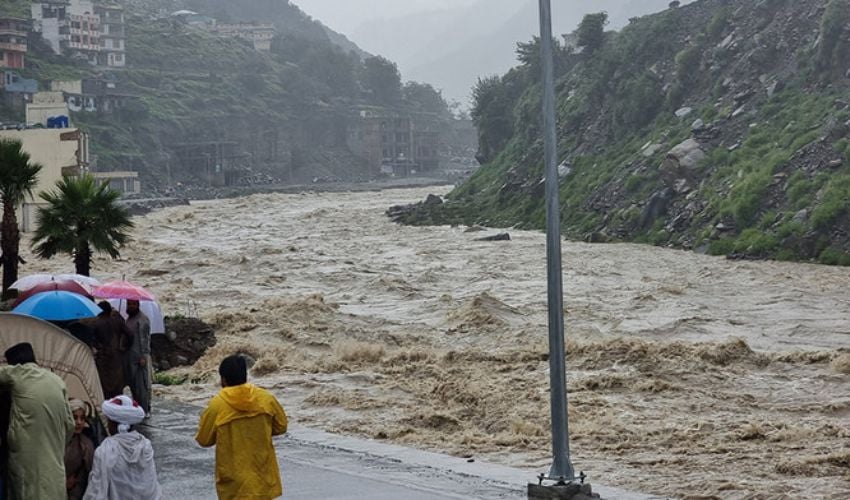PESHAWAR – Advisor to the Chief Minister on Information Barrister Muhammad Ali Saif said on Saturday that rescue workers were the “real heroes”, as the official death toll in Khyber Pakhtunkhwa due to flash floods climbed to 313.
At a press conference, Barrister Saif confirmed that Chief Minister Ali Amin Khan Gandapur visited flood-hit Buner on Friday and would tour Swat today. He said Buner was the worst-affected district, where 208 of the 313 deaths were reported.
The Advisor highlighted the role of Provincial Disaster Management Authority (PDMA) and Rescue 1122, saying they had played a “remarkable part” in the relief operation. He revealed that two helicopters had been immediately provided for rescue efforts, though one crashed during the mission. The Pakistan Army has since allocated five helicopters to the provincial government to support ongoing rescue operations.
PDMA Director General Asfandyar Khattak, in a separate briefing, said as many as 150 people may still be buried under debris in Buner, with similar fears in Shangla. He added that continuous rain had prevented aerial surveys so far. He confirmed that 54 relief trucks carrying non-food items were dispatched on Saturday morning and that 1.5bn rupees (5.3mn US dollars) had been released by the provincial government, already distributed among deputy commissioners for emergency response.
Khattak said rescue personnel from nearby districts had been deployed to affected areas. He warned that rescue vehicles stranded in Punjab were urgently needed in Khyber Pakhtunkhwa, urging the Punjab government to “act as an elder brother at this critical time.”
Barrister Saif drew attention to the work of rescuers during Independence Day celebrations in Siran Valley, where 2,000 people were saved within five hours after being trapped in a family park. “Those distributing medals should know that our rescue workers are also heroes,” he said.
He criticised the limited federal response, stating that while the National Disaster Management Authority (NDMA) had sent a few trucks, no large-scale relief supplies had arrived.
Rescue officials also pointed to secondary risks, warning that broken electricity lines could lead to more casualties and urging the Peshawar Electric Supply Company to act quickly. They further said mobile network outages had hampered coordination, making rescue operations more difficult.
Barrister Saif concluded by warning that with hospitals overstretched, communication disrupted and fears of disease outbreaks in camps, the scale of the Pakistan floods was still unfolding. “The bravery of our rescue workers is saving lives,” he said, “but this disaster demands a stronger national response.”












